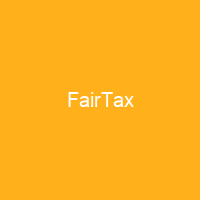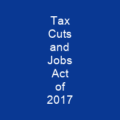The FairTax: A Sales Tax Proposal to Replace Income Taxes
Imagine a world where you no longer have to worry about complex income taxes and payroll deductions. That’s exactly what the FairTax aims to achieve. Introduced as H.R. 25 in the US Congress since 2005, this proposal seeks to replace federal income taxes with a single consumption tax levied on retail sales.
The Basics of FairTax
At its core, the FairTax is a fixed rate sales tax. But it’s not just any sales tax; it’s designed to be fair and progressive. The initial proposed rate is 30%, but this could adjust annually based on federal receipts. This means that as the economy grows, so does the tax rate, ensuring that everyone pays their fair share.
How It Works
The FairTax would be applied at the point of sale and include a monthly rebate to offset its regressive nature. This rebate is designed to ensure that those living at or below the poverty level pay no taxes, making it more equitable than current income tax systems.
Supporters vs Critics: A Battle of Beliefs
The debate over FairTax is intense. Supporters believe it would increase savings, investment, and economic growth while reducing the budget deficit. They argue that by eliminating income taxes, people will have more disposable income to spend and save, driving the economy forward.
But what about critics? Critics raise concerns about tax evasion, arguing that a national sales tax could lead to significant revenue losses. They also worry that it would disproportionately affect lower-income households who spend a larger portion of their income on taxable goods and services.
The Implementation Challenges
To become law, the FairTax bill will need to navigate several hurdles. It must be included in tax legislation from the U.S. House Committee on Ways and Means, pass both the House and Senate, and finally be signed by the President. This process is fraught with challenges, as evidenced by its long history of introduction without success.
Revenue Neutrality: A Key Question
A key question surrounding FairTax is whether it would be revenue-neutral. Economists disagree on the required tax rate to achieve this goal, with estimates ranging from 23% to over 30%. Studies suggest that purchasing power might shift from state and local governments to federal taxpayers, requiring adjustments in state and local tax laws.
Impact on Consumers
The FairTax would be levied once at the final retail sale for personal consumption on new goods and services. This means that purchases of used items, exports, business transactions, investments, savings, education tuition expenses, and other exemptions would not be taxed. Even internet purchases and international imports to the US would be subject to this tax.
Who Pays More?
The distribution of the tax burden is a contentious issue. Some argue that it could be progressive, with higher-income households spending less on taxable items than lower-income households. Others claim it would be regressive, hitting those at the poverty level hardest.
Transition and Impact
The transition to FairTax would see significant changes. The Internal Revenue Service (IRS) would be phased out after three years, replaced by Excise Tax and Sales Tax bureaus in the Department of the Treasury. This could lead to job losses for IRS employees but also a reduction in administrative costs.
Economic Growth and Competitiveness
Proponents argue that FairTax would boost economic growth, increase international competitiveness, and even raise real GDP by 10.7% within five years. However, critics point to potential issues like tax evasion and the complexity of enforcing a national sales tax.
The FairTax Movement
The movement for FairTax began with a group of businessmen from Houston, Texas, who founded Americans For Fair Taxation (AFFT) in 1994. This group has spent over $20 million on research and advocacy efforts, aiming to promote the plan through various means.
Support and Opposition
The FairTax received significant visibility during the 2008 presidential election, with a poll showing that 43% of Americans would support it. However, opposition remains strong, with concerns about its potential to increase tax evasion and reduce government revenue.
Conclusion: The FairTax Debate Continues
The FairTax proposal continues to spark debate among policymakers, economists, and the general public. While it promises a simpler and more equitable tax system, its implementation faces numerous challenges. As the discussion around tax reform continues, one thing is clear: the future of taxation in America remains uncertain.

You want to know more about FairTax?
This page is based on the article FairTax published in Wikipedia (retrieved on November 29, 2024) and was automatically summarized using artificial intelligence.







